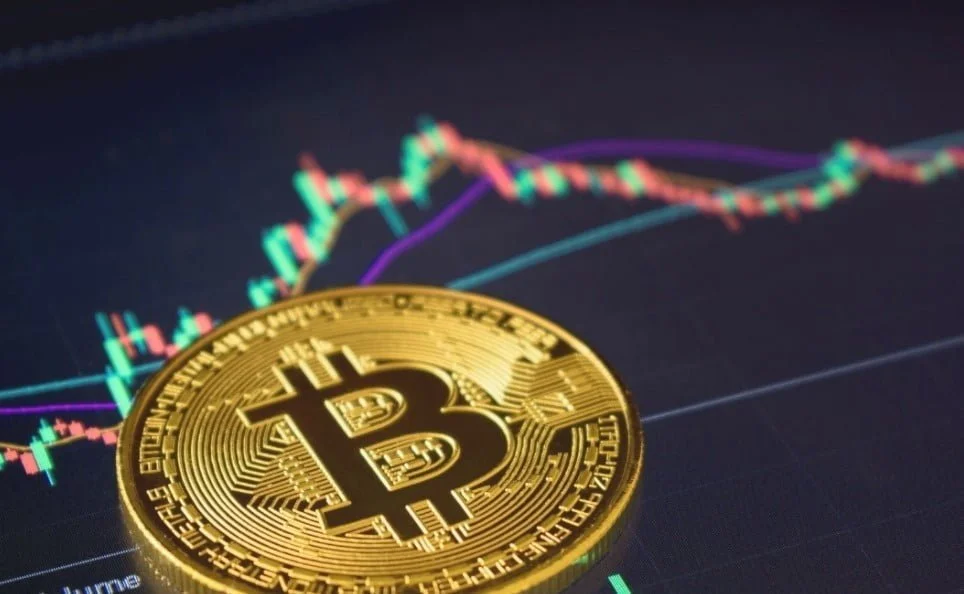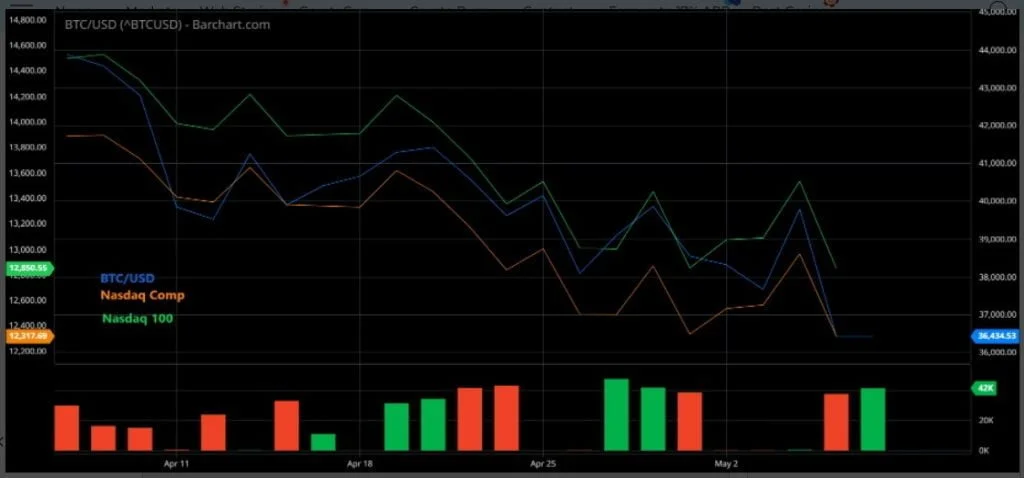Bitcoin (BTC) tumbled below a critical support level of $38,000 this week, as worries over an economic recession and rising interest rates magnified.

The token has dropped more than 8% in the last 24 hours, hitting a 1½ low of about $35,000. The drop was likewise one of the worst slumps yet in 2022. The token is now around 10% higher than its lowest point this year hit in January.
However, BTC’s recent decline happened in tandem with US stock markets. This year, the token has followed stock markets closely, especially major technology stocks in the Nasdaq Composite and Nasdaq 100 indexes.
Rising interest rates are the biggest concern for crypto and equity traders. The Federal Reserve has already raised interest rates twice this year and is expected to do so again to fight rampant inflation.
BTC slumps together with the Nasdaq
BTC’s one-day chart reveals that the token’s latest decline started around the U.S. market opening. On Wednesday, both the Nasdaq Composite and Nasdaq 100 indexes fell around 5%.

Technology stocks are easily affected by rising rates as it makes future earnings look less appealing. Their rally through 2021 was majorly driven by low-interest rates which made it easy to borrow money and invest them in stocks which also boosted BTC.
As a result, the token acts more like a technology stock.
Low-interest rates, however, had the unintended consequence of drastically increasing inflation, which was exacerbated by the Russia-Ukraine conflict. Central banks all around the world are now racing to reduce inflation by raising interest rates.
Crypto is harmed by tight monetary policy
The US isn’t the only country that has raised interest rates. The Bank of England, as well as central banks in Australia and India, recently raised lending rates, both in an unexpected move. All three banks regarded inflation as a greater threat to economic growth.
Traders tend to choose assets with higher real-world exposure, such as commodities, utilities, and consumer staples, in such an environment. Typically, technology stocks are avoided.
As a result, BTC and the crypto market are likely to experience some downturn, at least until central banks can introduce inflation.
